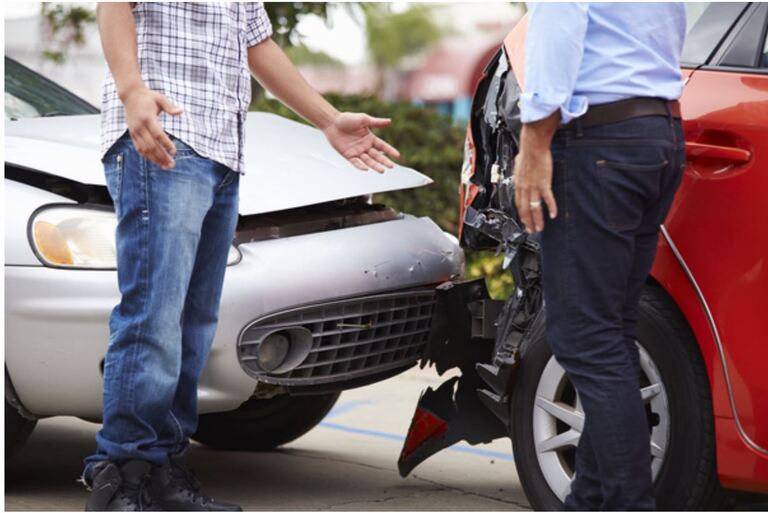Rideshare trips feel routine until a sudden collision turns an ordinary ride into a maze of medical bills, missed work, and insurance confusion. Passengers and drivers alike often discover that app-based policies operate on shifting rules tied to the driver’s status, and that liability can touch multiple parties at once. This article gives you a clear path through those issues, explaining how claims unfold, which coverages apply, and what evidence matters most. With decades of combined trial experience, Michles & Booth has seen how a well-documented claim and timely advocacy change outcomes for seriously injured people. You will learn how state rules intersect with platform policies, why insurance coverage gaps can stall recovery, and how an attorney pushes the case forward when insurers point fingers. If you need practical guidance beyond the basics, the insights below mirror how seasoned Pensacola Rideshare Accident Lawyers build leverage from day one.
Common Scenarios Leading to Rideshare Accidents in Pensacola
From downtown nightlife to crowded beach corridors, rideshare demand surges in places where traffic patterns are fluid and distractions run high. Many collisions stem from sudden lane changes to meet or drop a rider, hurried U-turns near hotel entrances, or split-second decisions at flashing crosswalks. Nighttime visibility, road construction, and unfamiliar routes compound those risks, especially when drivers rely heavily on turn-by-turn prompts. Passengers may also be injured in low-speed incidents—abrupt braking, dooring in bike lanes, or parking-lot maneuvers—where injuries can be real even if vehicle damage appears minor. In each scenario, the platform’s status timeline matters because it determines which insurance policies might respond first.
How local traffic patterns set the stage
Pensacola’s mix of tourists, students, and service workers creates peak hours where rideshare volume and congestion collide. Stadium events, festivals, and weekend bar traffic spike pickups at curbside zones, leading to chaotic merges and hard stops. Distracted driving—glancing between the app and the road—remains a recurring factor, especially when drivers chase back-to-back requests. For passengers, seat belt use and proper entry or exit on the sidewalk side reduce risk, but not every hazard is under their control. When injuries occur, Pensacola Rideshare Accident Lawyers evaluate the who, where, and when of the trip to put fault and coverage in sharper focus.
Understanding Uber and Lyft Insurance Coverage Gaps
Rideshare coverage in Florida typically hinges on three phases: app off, app on waiting for a request, and en route or transporting a passenger. When the app is off, the driver’s personal auto policy is primary, and many personal policies contain exclusions for commercial use. When the app is on and the driver is waiting, contingent liability coverage often applies, with limits set by Florida law, while comprehensive benefits like medical payments may not be included. Once a trip is accepted or a passenger is onboard, third-party liability coverage increases substantially, but questions remain about uninsured/underinsured motorist options and how they interact with your own policy. Florida’s no-fault system can also mean personal injury protection benefits come first, depending on your coverage.
When policy fine print changes everything
Coverage “hand-offs” can create insurance coverage gaps when claims fall between personal and platform policies or when exclusions are buried in endorsements. Some rideshare insurers provide robust third-party limits while offering narrow or optional uninsured motorist protections that vary by jurisdiction. Passengers often rely on their own medical coverage and PIP first, then seek recovery from at-fault parties or applicable rideshare policies. Timing is critical: documenting the driver’s app status, the exact pickup or drop-off stage, and communications within the app can determine whose carrier pays. Pensacola Rideshare Accident Lawyers routinely request telematics, trip logs, and dispatch data to lock down those details before memories fade.
Passenger Rights and Responsibilities After an App-Based Crash
As a passenger, you have the right to pursue compensation for medical expenses, wage loss, and pain and suffering when a driver—rideshare or otherwise—acts negligently. You are also entitled to clear claim handling, including contact information for all involved insurers and a copy of the police report once available. At the same time, you share responsibilities that protect your claim: seek prompt medical care, follow treatment plans, and preserve evidence such as photos, receipts, and correspondence. Avoid speculating about fault at the scene, and do not give recorded statements before you understand which insurer represents which party. Doing these basics well prevents avoidable disputes about causation, extent of injury, or contributory negligence.
Immediate steps to protect your claim
Start with medical treatment first, then capture simple but powerful evidence: scene photos, vehicle positions, driver information, app screenshots, and names of witnesses. Save ride details in the app, including time stamps and route maps, which help reconstruct how the crash unfolded. Report the incident both to law enforcement and through the platform, but keep your description factual and brief. If you lack health insurance or your PIP is limited, coordinate care through providers who understand third-party billing and liens common in injury cases. Pensacola Rideshare Accident Lawyers can also send spoliation notices to preserve dashcam footage, trip data, and driver communications that might otherwise vanish.
How Attorneys Navigate Multi-Party Rideshare Liability Disputes
Multi-vehicle rideshare crashes often involve parallel claims against the rideshare driver, another motorist, and sometimes a property owner or municipality. Each potential defendant has a different insurer, policy limit, and narrative about fault, which can stall recovery without a strategic plan. Attorneys begin by securing the digital trail—trip acceptance times, GPS breadcrumbs, in-app messages, and telematics that reveal speed and braking. They pair those records with physical evidence from the scene, medical documentation, and expert analysis to tell a coherent, defensible story about causation. When the case demands it, reconstruction specialists and human factors experts help translate data into compelling, jury-ready visuals.
Tools and tactics that move negotiations
Negotiations turn on leverage, and leverage comes from airtight facts and early pressure on every liable carrier. Lawyers issue targeted discovery, coordinate independent medical evaluations where appropriate, and challenge improper exclusions or misapplied offsets. Coordinating policy layers—personal auto, rideshare liability, and potential excess coverage—requires meticulous timing to avoid coverage bottlenecks. Pensacola Rideshare Accident Lawyers also navigate arbitration provisions and forum selection clauses that can change the venue or the rules of the dispute. Firms like Michles & Booth use phased demand strategies, presenting medical and economic losses in increments that make lowball offers untenable.
Recent Rulings Shaping Rideshare Compensation in Florida
Florida courts continue to refine how app-based transportation fits within traditional negligence and insurance frameworks. Arbitration clauses in user agreements have frequently been enforced, yet courts scrutinize assent and notice—particularly for minors, non-English speakers, or users who never saw the terms. The state’s dangerous instrumentality doctrine generally imposes vicarious liability on vehicle owners, but rideshare platforms typically do not own the cars, pushing plaintiffs to focus on negligent hiring, retention, or supervision theories. Decisions addressing data preservation underscore that app logs, driver histories, and telematics are discoverable when relevant and must be safeguarded once a claim is anticipated. Recent opinions also highlight how evidence of the driver’s “active app phase” can tip the scales on which policy must respond first.
Why these developments matter at settlement and trial
These rulings change the playbook for both proving fault and unlocking insurance funds. Plaintiffs who rapidly secure platform data and demonstrate the driver’s exact trip status often avoid months of finger-pointing between carriers. Defense arguments about independent contractor status still limit some vicarious theories, but they do not block claims grounded in direct negligence or statutory compliance failures. For injured passengers, understanding how arbitration, app status, and discoverable data interlock leads to sharper, better-timed demands. When stakes are high, Pensacola Rideshare Accident Lawyers who monitor appellate trends—and who coordinate discovery with technical experts—put clients in position to recover fully, a priority that aligns with the results-focused approach at Michles & Booth.






